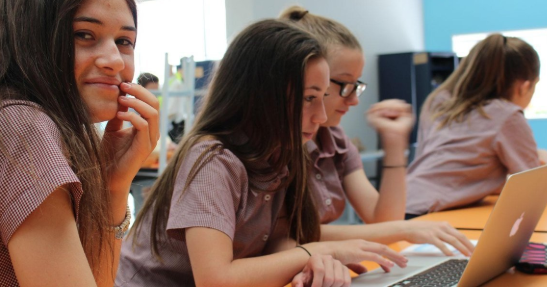
Future Oriented Education -a four year study
While Hobsonville Point Secondary School (HPSS) was being built, ready for opening in 2014, a group of leaders designed its curriculum. Beginning with a blank canvas, they devised a learning design model suitable for 21st century students and aiming to produce critical thinkers and empowered, life-long learners.
For its first four years, Dr Noeline Wright from the University of Waikato’s Wilf Malcolm Institute of Educational Research monitored progress and the results of her observations are now in a book, Becoming an Innovative Learning Environment: The Making of a New Zealand Secondary School.
“The school aimed to provide future-oriented education, replacing hierarchical teaching models with technology-enabled social learning practices and a cohesive learning model supporting self-discovery. One aim was to be more inclusive so students would learn with and from each other,” says Dr Wright.
One structure fundamental to the fabric of HPSS is the Learning Design Model (LDM). “I think it was a genius piece of work,” says Dr Wright. “The verbs of the model, such as test, generate, explore, can apply in different combinations to all learning and assessment. So regardless of subject combinations in modules, all teachers used LDM verbs to identify the key foci for the lesson.
“I was impressed how articulately students could describe how things worked for them. Even randomly approached students in classrooms could explain things confidently. I can’t say that about all classrooms in all schools I have been in.”
Dr Wright says student opinion is valued and has influenced the structures that teachers work with. Parents are consulted and invited to meet the principal informally, such as at a ‘Morning Tea with Maurie’.
Mr Abraham says a key principle in decision-making at HPSS has been on Powerful Partnerships. “We have been determined to invite students into the process of designing learning and to invite parents to be active participants alongside us,” he says.
Equally important with academic learning is pastoral care through the Learning Hub. Dispositional behaviours called ‘Hobsonville Habits’ link to the academic and pastoral process.
The Habits align with the school’s understanding of whole-brain development and focus on aspects such as cognitive, relational, critical and creative aspects of learning.
Within the Hubs, every student has a learning coach, who is responsible for about 15 students throughout their secondary school careers. About four hours a week are timetabled for Hub time to address learning and social issues or needs. Teachers have access to their students’ digital folders, and parents have ready access to the principal and teachers.
“The students noted that the boundaries between teacher and student sometimes appear blurred,” says Dr Wright. “While teachers are addressed by their first name, students know their work is easily checked. Students don’t seem to mind this scrutiny; they see it as part of the pastoral care process.”
Dr Wright says the school and board were brave and visionary.
“They knew that their innovations would create waves, which is why they spent a lot of time with parents. At the parent morning teas, Maurie explains and responds to questions about the emphasis on pastoral care and the individual student focus. That attracted some families and put others off. Parents I spoke to at one of the morning teas said that their children, who had learning difficulties, couldn’t wait to come to school every day. It indicates that the pastoral care orientation of Learning Coaches and the way the learning is organised, is working.”
HPSS has dispensed with Level 1 NCEA, as have some other New Zealand schools. Instead, students spend two years working towards Level 2 to obtain higher quality NCEA credits. This gives them more time to think and learn deeply without high anxiety and stress, says Dr Wright.
She says the system isn’t perfect; they make changes as they go along. “It’s about risk taking, and instead of talking about failure they talk about learning something they didn’t know before use that experience to influence their next decisions.”
Mr Abraham says they’re in a continuous state of learning, and he’s pleased with the way the school has taken shape. “We’ve set out to focus on our students being engaged in deep learning, and on putting the needs of the learners at the centre of all of our decision-making, with a particular focus on student wellbeing. We are very pleased with how our first five years has gone about achieving this.”
HPSS hasn’t been without its critics, and its open-door policy invites scrutiny. There have been struggles internally, but Dr Wright thinks HPSS is on the right track.
“There needs to be changes in our schools, especially in a century with access to information 24/7 and an onslaught of potential for manipulating people’s ideas. We need students to be curious and critical thinkers and learners, rather than passive consumers of stuff,” she says.
